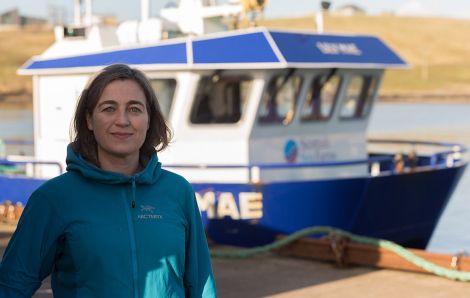Business / Poor SEPA rating for local salmon farms
SIXTEEN of Shetland’s 56 fish farming sites have been rated as ‘poor’ or ‘very poor’ in complying with statutory environmental standards last year.
In its annual compliance report, the Scottish Environment Protection Agency (SEPA) said that over 90 per cent of Scottish businesses regulated operated to a good or excellent standard.
However, while the compliance rate in aquaculture in 2017 was about 81 per cent across Scotland, in Shetland it was just over 71 per cent.
The majority of Shetland fish farms classed as ‘poor’ had seabed surveys conducted in 2017 which were assessed as “unsatisfactory”. Meanwhile Millbrook Hatchery, at Girlsta, had repeated minor breaches of discharge limits.
SEPA said owner Grieg Seafood was working with the regulator to improve compliance with discharge conditions on their site licence.
Three other Shetland based companies – 60 North Recycling at Rova Head, Lerwick, drilling waste services company TWMA, based at Gott, and Scottish Sea Farms’ processing plant in Scalloway (not classified as fish farming) – were also classed as ‘poor’ with improvement plans in place.
Individual assessment reports can be accessed via this webpage: http://apps.sepa.org.uk/compliance/
The chief executive of the Scottish Salmon Producers Organisation, Julie Hesketh-Laird, did not comment on individual regions.
But she said the vast majority of Scottish salmon farms were compliant, as 81 per cent of all Scottish aquaculture businesses were rated excellent or good.
“The Scottish salmon industry is committed to good environmental performance. In 2017 there was a slight drop in the industry’s compliance rate though we understand from SEPA that the issues have not led to any environmental deterioration,” she said.
“The industry works closely with SEPA to ensure it meets required standards, and addresses issues promptly where there is room for improvement. Indeed this is central to the way compliance is assessed, with farms required to demonstrate action to remedy non-compliance. The industry is committed to raising standards higher.
Become a member of Shetland News
“Individual SSPO member companies will work quickly with SEPA to address issues where they arise.”
SEPA said it was firmly committed to protecting and enhancing Scotland’s environment, and added that it would shortly announce a revised regulatory regime that would firmly strengthen the regulation of the aquaculture sector across Scotland.
Chief executive Terry A’Hearn said SEPA would not tolerate consistent non-compliance.
“Our annual compliance report card enables us to systematically identify the compliance issues that need to be tackled in sectors like aquaculture and landfill,” he said.
“Local communities will rightly hold us to account if future years do not show an improvement.”
Become a member of Shetland News
Shetland News is asking its readers to consider paying for membership to get additional perks:
- Removal of third-party ads;
- Bookmark posts to read later;
- Exclusive curated weekly newsletter;
- Hide membership messages;
- Comments open for discussion.
If you appreciate what we do and feel strongly about impartial local journalism, then please become a member of Shetland News by either making a single payment, or setting up a monthly, quarterly or yearly subscription.




























































